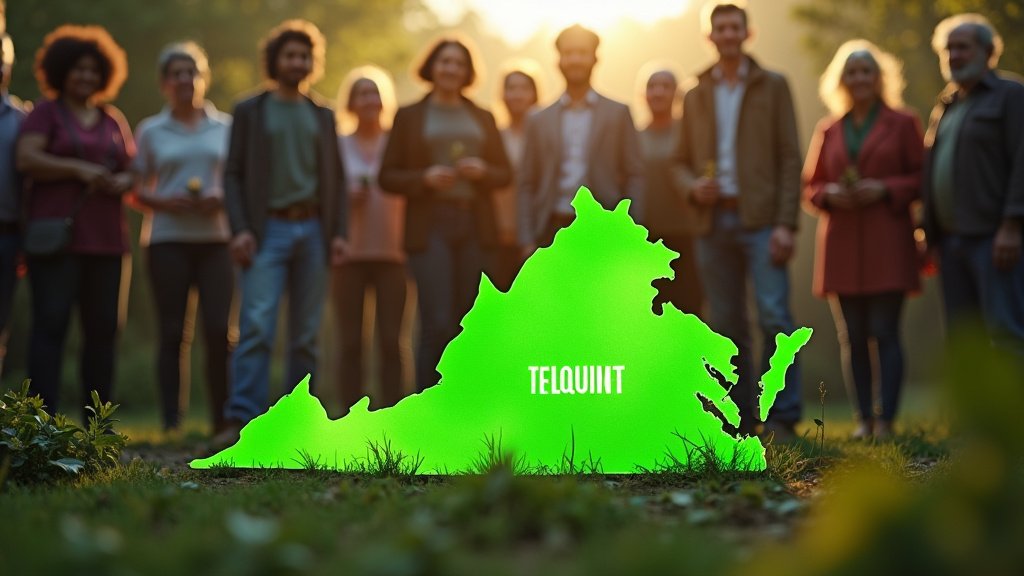The landscape of cannabis laws in the United States is undergoing significant changes, reflecting a broader shift in societal and governmental attitudes toward marijuana. Recent developments include federal moves to reclassify cannabis and new state-level regulations that impact everything from employment protections to banking services. This article delves into these changes, providing a comprehensive overview of what they mean for businesses, consumers, and policymakers.
Breaking News in Cannabis Legislation
Federal Rescheduling of Cannabis
In a historic move, the U.S. Drug Enforcement Administration (DEA) is set to reschedule cannabis from a Schedule I to a Schedule III drug. This reclassification acknowledges the medical benefits of cannabis and reduces its perceived potential for abuse compared to drugs like heroin and LSD. The change follows recommendations from the Department of Health and Human Services (HHS) and aims to ease some of the stringent regulations that have hampered the cannabis industry.
Implications of Rescheduling
The rescheduling of cannabis has several important implications:
- Tax Relief: One of the major benefits is the potential relief from Internal Revenue Code 280E, which currently prevents cannabis businesses from deducting normal business expenses.
- Banking Access: Although rescheduling does not legalize cannabis outright, it could make banking services more accessible to cannabis businesses, although significant hurdles remain due to ongoing federal illegality.
- Research Opportunities: The reclassification may facilitate more scientific research into the medical uses of cannabis, which has been limited under the Schedule I classification.
State-Specific Changes
California
California continues to lead in cannabis regulation with new laws aimed at protecting workers and expanding access. As of 2024, employers in most sectors cannot discriminate against employees for off-duty cannabis use. Additionally, the state has increased the possession limits for both recreational and medical users.
Nevada
Nevada has doubled the legal possession limit for cannabis to 2.5 ounces for adults, and integrated medical and recreational cannabis sales. This reform is part of a broader effort to streamline the state’s cannabis industry and expand market participation.
Virginia
Virginia has established the Cannabis Control Authority (CCA) to oversee its medical cannabis program, a step towards potentially regulating recreational sales in the future. However, legislative challenges remain in fully implementing a comprehensive regulatory framework.
Challenges in Cannabis Banking
Despite the positive steps towards rescheduling, banking remains a significant issue for the cannabis industry. Many financial institutions are reluctant to engage with cannabis businesses due to the lingering federal illegality. This forces many businesses to operate on a cash-only basis, increasing the risk of theft and complicating financial management.
Impact on Businesses and Consumers
Business Operations
For businesses, these changes necessitate a keen understanding of both federal and state regulations. Companies must navigate the dual landscape of complying with federal laws while maximizing the opportunities provided by state laws. This often involves sophisticated legal and financial planning, particularly for multi-state operators.
Consumer Access and Rights
For consumers, especially those using cannabis for medical purposes, these legislative changes can mean greater access and protection. The removal of penalties for off-duty use in states like California enhances consumer rights and reduces stigma. Additionally, higher possession limits in states like Nevada improve accessibility for both recreational and medical users.
Detailed Overview of State Cannabis Laws
California’s Evolving Cannabis Landscape
California has long been a pioneer in cannabis legalization, and its laws continue to evolve. The state’s approach balances consumer access with strict regulatory oversight to ensure safety and compliance.
Legalization and Possession
Adults 21 and older can legally possess, use, and grow limited amounts of cannabis for recreational purposes. Specifically, individuals can purchase and possess up to one ounce of cannabis flower and up to 8 grams of concentrated cannabis. Home cultivation is also permitted, with adults allowed to grow up to six plants per residence.
Public Consumption and Sales
Public consumption of cannabis remains illegal in California. This includes using cannabis on sidewalks, in parks, in vehicles, and other public spaces. However, some cities have designated consumption areas where public use is permitted. Retail sales are strictly regulated, with only licensed dispensaries allowed to sell cannabis products. These dispensaries must adhere to state and local regulations, which can vary significantly across different jurisdictions.
Medical vs. Recreational Cannabis
There are important distinctions between medical and recreational cannabis users in California:
- Medical Cannabis: Requires a doctor’s recommendation and a Medical Marijuana Identification Card (MMIC). Medical users can purchase and possess larger amounts of cannabis and are exempt from sales taxes.
- Recreational Cannabis: Available to anyone 21 and older without the need for medical documentation. Recreational purchases are subject to excise and sales taxes, and users are limited to smaller possession amounts.
Employment Protections
New legislation in California prohibits most employers from discriminating against employees based on their lawful off-duty cannabis use. However, there are exceptions for certain professions, such as those requiring federal background checks or security clearances, and healthcare workers directly involved in patient care.
Nevada’s Comprehensive Cannabis Reforms
Nevada’s recent legislative changes reflect a significant shift in the state’s cannabis policy, aiming to enhance consumer access and streamline industry operations.
Increased Possession Limits
Effective January 2024, Nevada has more than doubled the legal possession limit for adults, allowing them to possess up to 2.5 ounces of cannabis and 1/4 ounces of concentrate. This increase aims to make cannabis more accessible to both recreational and medical users.
Integrated Sales Model
The state has integrated medical and recreational cannabis sales, meaning recreational retailers can now serve medical patients without needing a separate license. This change is intended to simplify the market and reduce operational barriers for businesses.
Regulatory Changes
Nevada’s new laws also include provisions to expand market participation by individuals with prior felony convictions, furthering the state’s commitment to social equity in the cannabis industry.
Virginia’s Path to Regulation
Virginia is taking steps towards establishing a regulated cannabis market, although full implementation is still in progress.
Cannabis Control Authority (CCA)
The establishment of the CCA is a crucial step in Virginia’s regulatory framework. This body will oversee the state’s medical cannabis program and potentially regulate future recreational sales.
Current Legal Status
Currently, Virginia allows adults 21 and older to possess and cultivate cannabis for personal use. However, the state has yet to pass comprehensive legislation to regulate recreational sales, leaving a gap in the market that lawmakers are working to address.
Washington State’s Employment Protections
Washington State has enacted new employment protections for cannabis users. As of 2024, employers are prohibited from discriminating against job applicants based on their lawful cannabis use. However, similar to California, this protection does not extend to certain professions, and employers can still maintain drug-free workplace policies.
Cannabis Banking Challenges and Prospects
The Banking Conundrum
One of the most significant challenges facing the cannabis industry is access to banking services. Despite state-level legalization, federal laws continue to pose barriers.
Federal Illegality and Its Impact
Many financial institutions avoid engaging with cannabis businesses due to the risk of federal penalties. This federal illegality forces many cannabis businesses to operate on a cash-only basis, which not only complicates financial management but also increases security risks.
Potential Solutions
There are ongoing legislative efforts to address these banking issues. The SAFE Banking Act, for instance, aims to provide legal protections for banks serving the cannabis industry, although it has yet to pass in Congress.
The Role of Rescheduling
The DEA’s move to reschedule cannabis could potentially ease some banking restrictions, as Schedule III substances are viewed as having legitimate medical uses. However, significant regulatory hurdles remain, and full resolution of banking issues will likely require additional legislative action.
The Future of Cannabis Legislation
Federal Legalization Prospects
The rescheduling of cannabis is a significant step towards broader federal legalization. While it stops short of full legalization, it reflects a changing attitude towards cannabis at the federal level. This shift could pave the way for more comprehensive reforms in the future.
State-Level Innovations
States continue to be the primary drivers of cannabis policy innovation. As more states legalize and regulate cannabis, they are developing new models for addressing issues such as social equity, public health, and economic development. These state-level experiments provide valuable insights that can inform future federal policies.
Industry Growth and Challenges
The cannabis industry is poised for significant growth, driven by increasing legalization and consumer acceptance. However, businesses must navigate a complex regulatory landscape and ongoing challenges related to banking, taxation, and federal compliance. Industry stakeholders must stay informed and engaged with the evolving legal environment to capitalize on opportunities and mitigate risks.
Conclusion
The recent shifts in cannabis laws, both at the federal and state levels, represent a significant evolution in the regulatory landscape.The recent shifts in cannabis laws, both at the federal and state levels, represent a significant evolution in the regulatory landscape. While the DEA’s move to reschedule cannabis marks a monumental change, challenges remain, particularly in banking and comprehensive federal legalization. As states continue to refine their regulations, the cannabis industry must navigate a complex and dynamic legal environment.







Really insightful article! Thinking about user journeys & conversion is key. Seeing platforms like SZ777 casino login focus on that-reducing friction & building engagement-is smart. Great points about behavioral analytics too!